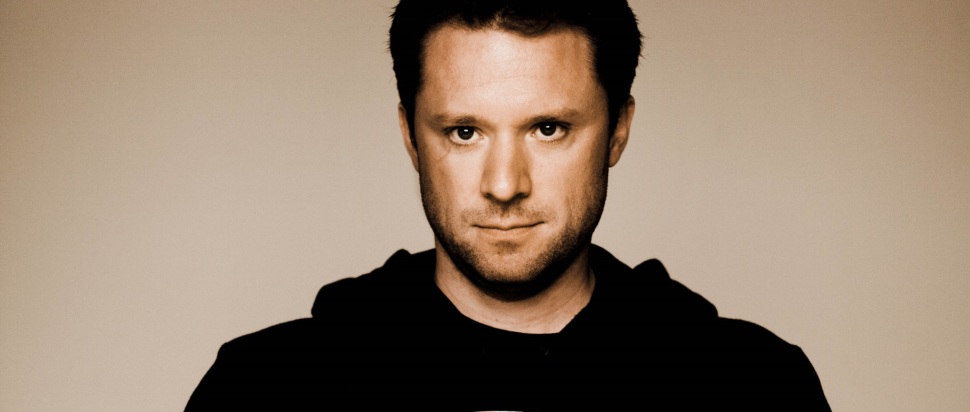Colin Currie on the SCO's Steve Reich + performances
Ahead of the Scottish Chamber Orchestra's Steve Reich + performances this November, we catch up with world-renowned percussionist and director Colin Currie
“The perceived barrier between classical music and popular culture is a fake concept. It's not convincing to me at all.”
These are the impassioned thoughts of Colin Currie – a world-renowned classical percussion soloist of everything from drumkits to mallet instruments and tuned percussion like marimba – on the metaphorical walls that stand at the borders of contemporary classical music and the mainstream. It’s an obstacle that his hero, Steve Reich, the father of modern classical minimalism, sought to dissolve with every new composition.
“If you speak to a lot of practitioners of either art form, we're not interested in this distinction,” he continues. “For so many artists, music is music, simple as that, and music doesn't know boundaries. And the links between these disciplines, which have been pigeonholed, are much stronger than the things that separate them.”
It’s the privilege of being an artist to dispel barriers when engaging in their practice so as not to be creatively boxed in, but it does not prevent the rise of a perception that a particular stratum of the musical ecosystem is closed off. Contemporary classical music can suffer the same accusations of barriers to entry for people from working-class and minority backgrounds as any other genre of music does today, but its image and history as inaccessible to pockets of society may, rightly or wrongly, also remain.
The Scottish Chamber Orchestra is acutely aware of this. Steve Reich + is the latest in a series of shows, put on in association with The Skinny, that seek to make classical performances appealing to everyone (91% of bookers to similar previous shows were new to the SCO). It’s a simple but effective concept: thoughtful choices for pieces with crossover appeal, smaller, more down-to-earth rooms, affordable ticketing.
“The context is still somewhat that of an orchestral concert because it’s a chamber orchestra in performance, but the music that will be played will be very approachable and will light people's fires. It’s very imaginative and mind-enhancing music,” says Currie. “It's also ambitious – it’s many things. And these kinds of barriers that have been put up in some areas of the media, or in the minds of the industry, they are an artificial construct. And this concert is a chance to prove that.”
Bringing onboard the Edinburgh-born Currie to direct, who has a long history with and love of the SCO, is a masterstroke. The repertoire he has built has been highly influenced by Reich – the Colin Currie Group has toured interpretations of his compositions, and Reich has written original work for Currie himself to perform – which is why the show will be a celebration of his famous pointillist rhythms, of forebears and contemporaries like Louis Andriessen, and of musical descendants like Julia Wolfe. “Steve is the sort of prophet of this school of music in the States and Wolfe is the next generation down: very gritty, with a hard-edged groove, which comes directly out of the confidence that Steve gave a whole generation of composers to follow on from,” says Currie. It really is a showcase of his Reichian well of knowledge.
“Reich is such a central figure to everything I do and so many of the other musicians I've worked with have also been under his spell. He’s such a huge influence on new music generally,” explains Currie. “And because he's someone I'm so close with, and the music means so much to me, and because this is my first outing conducting the SCO, I really wanted to go and make a statement with Steve’s music.”
The centrepiece of the show will be Reich’s Radio Rewrite, a kind of interpretation and abstraction of two Radiohead songs: Kid A’s Everything In Its Right Place, and In Rainbows’ Jigsaw Falling Into Place. “There’s a strong influence from the kind of harmonies [used in popular music], and also a rejection of slightly more austere areas of contemporary music which can feel a bit alienating. There's nothing overly esoteric about this music – it has that warm embrace. It's very catchy,” says Currie.
The components of the show seem to be doing heavy lifting when it comes to any perceived gap in accessibility. The SCO is leading on this as a historic cultural institution. “Since the orchestra began, the SCO has always looked for ways to ensure that as many people as possible can experience the joy of its live music-making, draw in new people, and make sure nobody feels that classical music isn’t for them,” says its Creative Learning Director Laura Baxter.
The SCO is driving forward initiatives that take musical performances to lesser visited areas of the country, putting on more matinees, staging specialised shows for people with dementia and for youth and families. It’s also “halfway through a unique five-year community residency in Greater Craigmillar, where we are delivering cross-artform performances and workshops for audiences to explore their musical potential,” says Baxter.
“We take this responsibility seriously. We hope people find something to enjoy and be inspired by in every concert we present.”
Steve Reich + takes place at The Queen's Hall, Edinburgh, 9 Nov; City Halls, Glasgow, 10 Nov
